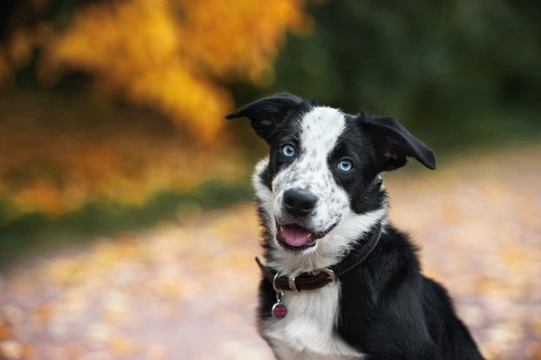
Canine anorexia - What it means for affected dogs
Most of us are familiar with the word anorexia, short for “anorexia nervosa,” as a human eating disorder. The word “anorexia” itself has a much wider, generalised form of usage, and means a loss of appetite or other underlying reason for a refusal or unwillingness to eat. Certain health conditions, medications and other physical elements can lead to physical anorexia in the dog, which is usually a short-term issue that occurs only until the underlying problem has passed or reached its natural conclusion.
However, in some cases, dogs can and sometimes do refuse to eat for psychological reasons related to their state of mind and appetite for food, and this is something that we will examine within this article. Read on to learn more about canine anorexia.
The difference between hunger and appetite
First of all, when seeking to understand canine anorexia, it is important to understand the difference between hunger and appetite, as psychological anorexia is related to appetite only.
Hunger is a wholly physical drive to eat, telling the dog that their stomach is empty and that they need food for fuel, while appetite is to do with tastes and preferences, just as it is in people.
For instance, if you feel hungry, eating any type of food in sufficient amounts will stave off your hunger and fill you up. However, if you fancy a cake, but would not be interested in eating a sandwich, this is appetite, a psychological preference for a certain thing at a certain time, based on what you would like to eat and why you want to eat, rather than a physical need to fuel the body.
This is why things like stress, upset or fear can make you lose your appetite, even if you feel hungry at the same time; and the same is true for dogs.
A loss of appetite rather than a loss of hunger is the distinction between canine anorexia, and a physical, underlying cause for not wishing to eat.
What can cause psychological anorexia in the dog?
Whilst a form of anorexia (loss of appetite or unwillingness to eat even if hungry) can occur as a physical short-term result of physical issues, such as certain health conditions, medications or simply feeling unwell, psychological anorexia in the dog is much more complex; the condition is not fully understood even in people, and there are a huge number of different paths to treatment and recovery, each of which are very different.
Psychological anorexia in the dog is not, as is often the case with people, related to body image; however, there are a huge range of other psychological triggers that can lead to a loss of appetite and an unwillingness to eat in the dog nonetheless. Some of these triggers include:
- Stress.
- Fear.
- Grief.
- Discomfort.
- Nervousness.
- Boredom.
- Depression.
- Behavioural problems.
- Poor handling or a history of abuse.
- A strong dislike for the food offered.
- Not recognising the food offered as their meals; for instance, if a dog has become used to eating human food rather than dog food.
Whilst such issues can affect any breed or type of dog at any age, dogs that are highly intelligent, very active and are highly strung or need a lot of stimulus in order to be happy are particularly sensitive to such things, such as the petite Yorkshire terrier, or the lively, personable Springer spaniel, who is nonetheless a very sensitive character!
Identifying and diagnosing the problem
First of all, if your dog stops eating, is reluctant to eat or otherwise is not eating enough to support a healthy body, you must take them along to the vet, in order to definitively identify the problem and rule out any underlying health condition or physical causes. It may not be possible to do all of this in just one visit, as your vet may wish to test a blood and/or urine sample from your dog, and possibly perform diagnostic imaging to check out your dog’s digestive and general health.
You will need to give your vet an honest, complete account of your dog’s prior health, personality, lifestyle and living situation, particularly as any of these things might relate to stress or emotional upset in your dog, as this will be as important in the diagnosis of the condition as physical indicators are when it comes to allowing your vet to reach a firm conclusion about the problem.
What can be done for anorexic dogs?
Once both yourself and your vet are confident in a diagnosis of true anorexia or loss or appetite rather than a physical problem, the next step is identifying what is causing upset, stress, or otherwise something anomalous in terms of your dog’s desire for food.
Once this has been achieved, or you have considered a few different factors in combination, making the appropriate changes to your dog’s lifestyle, or supporting them to the point that their natural balance is restored is the next step in helping your dog to feel happier and more comfortable, and so, regain their appetite.
Tempting your dog with various different food offerings should be incorporated into this, and your vet will be able to suggest various different ways to do this, such as possibly feeding your dog in a different room, on their own, or offering them small pieces of food by hand.
The sooner that you notice that something is amiss and take steps to correct it, the better this will be for your dog, as the longer that they refuse to eat for, the harder it can be to help them to get their appetite back again.



